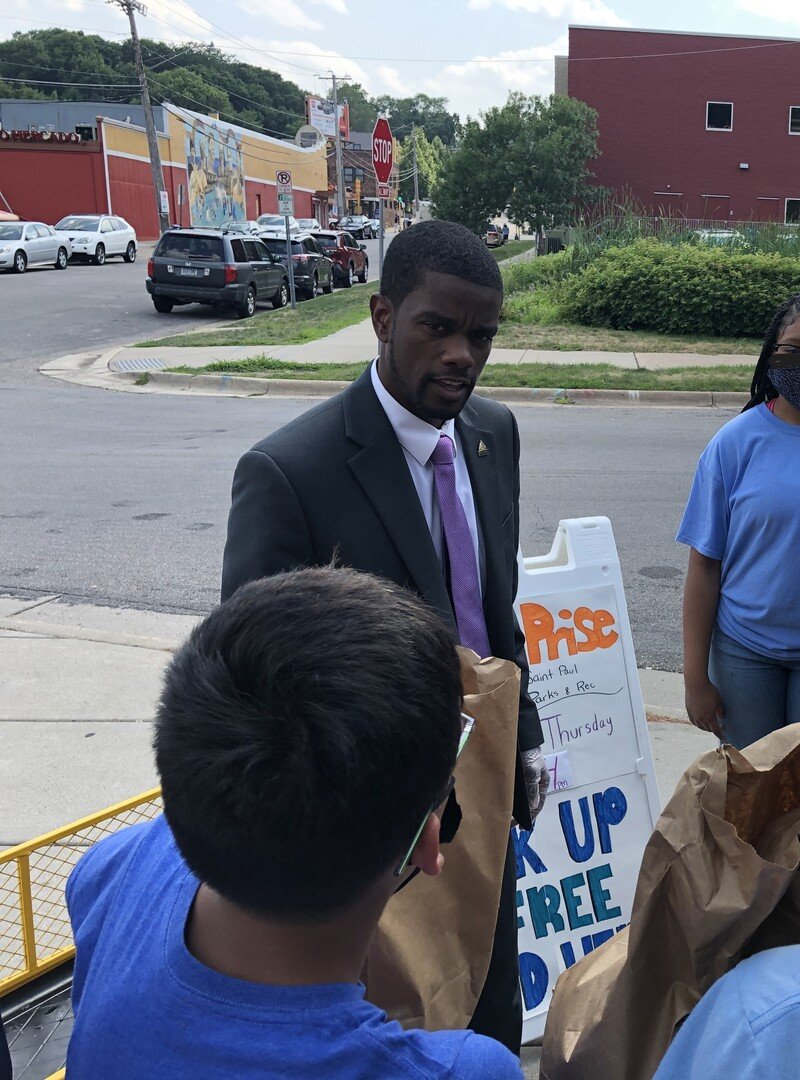DIRECTOR’S STATEMENT
“It’s basic. Just give people money.”
Sounds simple and at the same time preposterous. But it turns out it’s an idea that has been around for quite a while.
For the Blowback team, our interest in this concept started back in 2016 when we met Michael Tubbs in Stockton, California while scoping out a new HBO documentary. We produced a series of films about the impact of global economic changes on everyday people. Starting with the Great Recession of 2008, we made Schmatta: Rags to Riches to Rags, a film that profiles how the garment industry helped to create the American middle class and how globalization and automation almost destroyed it. We followed with Hard Times: Lost on Long Island, which tracks white-collar workers in suburbia who lose their jobs and economic security. The third in this trilogy was Class Divide, a documentary that focuses on income inequality and the hyper-gentrification in our own West Chelsea neighborhood in New York City. It is told through the eyes of children on two different sides of 26th Street and 10 Avenue – on one side kids are living in public housing, on the other is Avenues The World School where some of the city’s wealthiest families send their children.
Saint Paul, MN became our anchor city because it started its program first under Mayor Melvin Carter, a co-chair of MGI. It was there we met Lucille, a school bus driver who was trying to raise a large family, and Abby and Anders, a young couple with a newborn hoping to buy a home. We tracked these characters from their beginning to their end when they had to readjust to life without the extra $500 a month. Lucille brilliantly summarized the concept, telling us, “Put a little gas in my tank and I’ll show you how far I can go.”
As filmmakers our greatest challenge was trying to weave a host of characters from these five cities into an organic whole. We didn’t want the film to seem like a survey. Instead, we wanted to get to know these people and were constantly trying to find a balance between their stories and the larger policy issues and history. We were always debating how many characters we could profile before we hit character sprawl. Some compelling recipients like Murray and Izzy in Gainesville had to be cut. We also wanted to include the mayors of each city and the non-profit community organizations that administered the pilots. People like Kevin Scott at Just Income in Gainesville were indispensable in making Gainesville’s program work.
Our Executive Producer Michael Tubbs and the MGI staff pointed us in the right direction. It was complicated dealing with numerous city halls, community organizations, and the many participants who volunteered to be part of their pilots’ story telling cadre. But our production team led by Producer Daphne Pinkerson, Co-Producer Aurielle Akerele, and Coordinating Producer Elizabeth Sehring juggled it all and kept us on budget and schedule. Editing this film was where we had to make the toughest decisions. We asked ourselves: How far do we go in the lives of our characters as other dramas unfold? Our editor, John Maidman, did a great job with the tremendous help of Allen Dobbins’ cinematography and Khari Mateen’s original score. In the end, we blended it all together in a way that we hope opens minds and touches hearts.
It’s Basic.
A little bit of money.
A world of difference.
- Marc Levin, Director
Following his term in office, Michael Tubbs created Mayors for a Guaranteed Income (MGI) - a network of mayors advocating for a Guaranteed Income to ensure that all Americans have an income floor. He raised philanthropic funds to seed pilots around the country and to document their effect. Data from these programs is currently being analyzed at the University of Pennsylvania.
We decided to join forces again to produce a documentary that amplifies the human stories of several participants in five cities - Saint Paul, MN; Cambridge, MA; Newark, NJ; Gainesville, FL; and Los Angeles, CA. Although it sounded natural to us, trying to sell a documentary on an innovative anti-poverty initiative like Basic Income is dead on arrival at most networks and streamers. But the participants make up a truly compelling American tapestry and have very important stories to tell. They are self-selected, remarkably diverse and representative of over 60% of our citizens who live paycheck to paycheck in a constant state of economic insecurity.
“Working on these films allowed us to become familiar with Basic Income.”
Working on these films allowed us to become familiar with Basic Income. We were drawn to Stockton because of Mayor Tubbs’ inspiring personal story and his implementation of the first municipally backed Guaranteed Income pilot program in the country. The result of our connection was the Emmy nominated, HBO documentary Stockton on My Mind in 2020. Then, Covid hit, the George Floyd tragedy unfolded, and massive demonstrations around the world arose that demanded justice. During this frightening and chaotic time, the federal government sent out checks to help citizens survive - a form of Basic Income. In the 2020 presidential primary campaign, Andrew Yang popularized the idea with his proposal to give every American $1000 a month.




